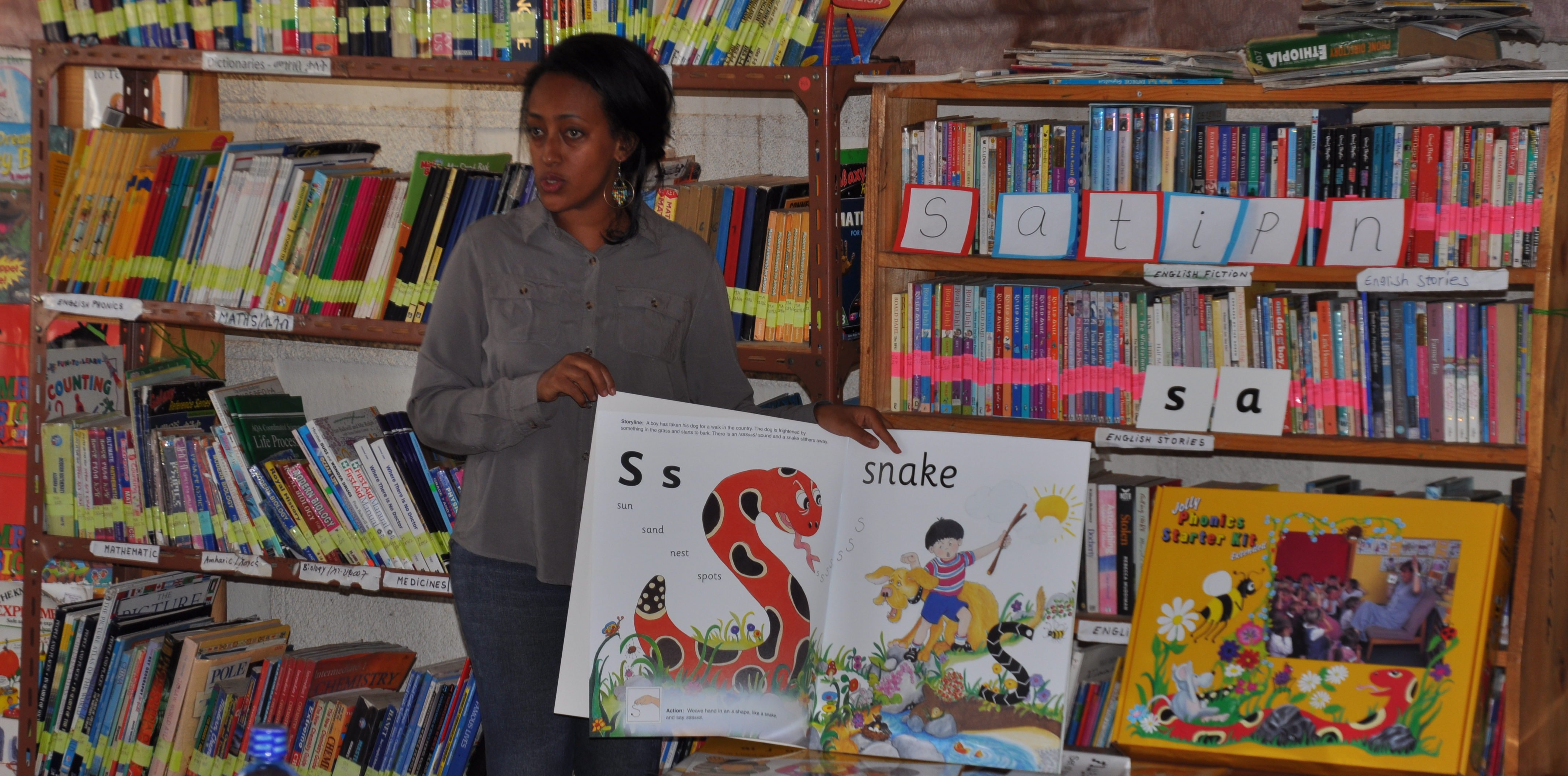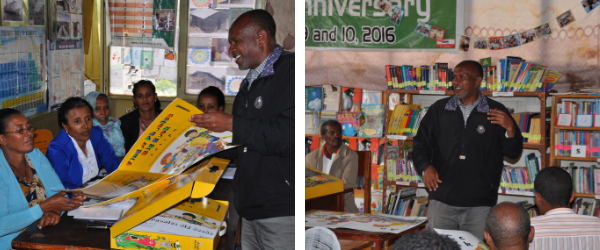Students in Ethiopia are taught in their mother tongue but understanding English is vital for any students who want to continue education beyond primary level. In most regions, from secondary school onward, all subjects are taught in English. So for a student to succeed beyond primary level a good understanding of English is a necessity.
Link Ethiopia brought together 36 teachers, 4 trainers from the teacher training college, and members from Gondar’s education office, to learn how to teach English using phonics, getting children to sound out words instead of memorising them. The training was led by Luwam, a Jolly Phonics trainer from Uganda as part of Link Ethiopia’s partnership with Jolly Futures.

This is part of our latest initiative focusing on children’s literacy. In 2013 we carried out our 3 year Libraries and Literacy project, training teachers to include a 15 minute phonics lesson within their English lessons and training school librarians to get children reading in school. The outcomes of the project were impressive; we were delighted to observe that there was a notable improvement in the standard of English for children taught to use phonics. At the end of our projects, children who had been taught phonics had a reading age 5 months ahead of the average student.
Jolly Phonics is a method of teaching English reading that is already widely used in schools in the UK and as well as private schools across the globe. Ask the folk at Universal Learning Solutions , who have taken the phonics method of English teaching from a single school in Nigeria to their nationwide curriculum over the past 10 years, and they will tell you “Jolly phonics is fun”. So many who are involved identify the success of the method in its ability to really engage children so they can learn and retain the information.

Teachers learn how to help children break down words into sounds so they can learn to read without memorising whole words. Jolly Phonics also uses music, colourful drawings and actions to help students remember how the sounds and letters are linked. This approach is a world away from the usual blackboard and rote learning that is the standard in Ethiopian primary schools. We are extremely grateful to Jolly Phonics for donating materials to enable 10 schools in Gondar to introduce phonics to their English teaching.
The teachers attending our first training session were grade 1, 2 or kindergarten teachers at state schools. Typically, these teachers are trained to diploma level, teach in basic conditions with classes of over 50 children and little more than a blackboard to facilitate lessons. The challenge for engaging teaching is not small! We are targeting teachers at lower grades so that we can teach children the fundamentals of reading English from the beginning. It is a skill that, once learned, will assist them in understanding of English for the years of studying to come. We are also providing extra training to 4 trainers at the teacher training college so they can train the teachers of the future in the phonics method, ensuring the sustainable delivery of phonics teaching for the long term.

Our Regional Manager and Project Manager in the Gondar office are well versed in the Jolly Phonics approach and, having been teachers themselves, well positioned to support the teachers to incorporate this method into their lessons. At the beginning of this weekend, the teachers had to start from scratch, putting to one side the 26 letter names and learning 42 sounds including diagraphs such as ‘sh’, ‘th’, ‘oo’ and ‘ee’. Some of these, such as ‘th’, are particularly difficult as they do not match any sound in Amharic. By the end of the training the teachers had not only learnt the sounds and their actions but could model a phonics lesson for other teachers.
This is just a small indicator of the changes that can come from this training. We will be working with these teachers and their schools over the next year, observing lessons, providing ongoing support and training, and monitoring the impact that phonics has on students in their classrooms. At the end of the year, the project does not end. We will scale up the project to support teachers in another 3 areas of the Amhara region, spreading the impact of this instructive, child-friendly method of teaching English and providing hundreds of children with the foundations on which they can build their understanding of English and improve their chances of succeeding in education in the long term.
We thank the Waterloo Foundation who are funding this project in year 1 and 2. We are currently seeking funding to scale up the project in 2021, please contact us if you are interested in supporting this project.